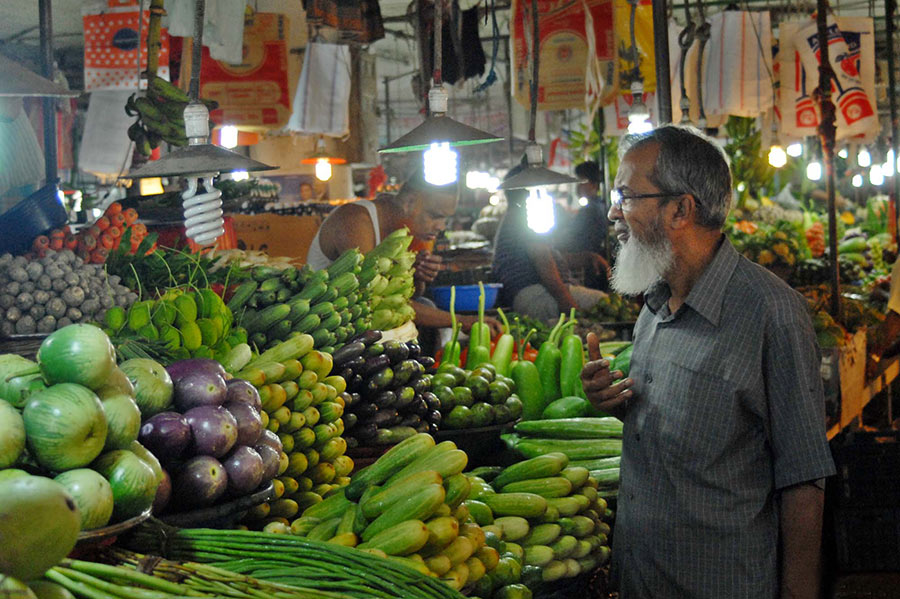
Published :
Updated :

That inflation has galloped once again at the beginning of the second quarter of the current year bodes ill of the country. In the past month, it registered a record high in seven months. The inflation soared to 9.89 per cent in May from 9.74 in April last. On point-to-point basis, the jump was 0.65 percentage point from 9.24 per cent this month a year ago. This is indeed a cause for concern. Perhaps more concerning is the higher inflation in rural areas where it has hit the double digit at exactly 10 per cent as against 9.72 per cent in cities and towns. Still more unsettling is the fact that the overall inflation has been spurred by costlier foods both in rural and urban areas. Even a drop in non-food inflation by 0.15 percentage point has paled before the aggressive rise in food prices. Thus villages and urban centres had to grapple with food inflation at 10.73 and 10.86 respectively.
The Consumer Price Index (CPI) prepared by the Bangladesh Bureau of Statistics paints a bleak picture for the country, no doubt. But reading between the lines what emerges as a highly disconcerting development is the factors responsible for triggering the rural inflation higher than that in the urban locations. The factors obviously concern non-food items which are pricier in rural areas than in urban centres. Transportation costs of such items may be one of the reasons for their higher prices in villages. But there are other reasons such as illegal tolls during their transportation. Although this happens on both ways, the fact is that most industries are located in urban areas or in their vicinities. Naturally such items are more outbound. In villages, the majority of population can at least manage the staple for several months if not for the entire year. May arrives immediately after Boro harvest and this explains lower food inflation in villages. In the lean months, many of their fortune is likely to run out. But for the urban poor, there is no respite from the inflation blight.
True, the global food market has started growing jittery after registering a steady fall in prices. In 2023, according to the World Food and Agriculture Organisation (FAO), prices of food commodity fell by 13.7 per cent after it reached the record high in October 2022. However, there was no reflection of this price fall in Bangladesh's CPI. Accusing fingers are pointed at unholy business coteries which manipulate the market to their advantage. But there are middlemen who also take a big slice of the ill-gotten cake. The hideous nexus has turned the country into a breeding ground of corruption that sucks into it people in power and high position. It is hardly surprising if men of ex-IGP Benazir's ilk have proliferated to help advance the nexus's dubious cause instead of common people's interests.
Sure enough, monetary policy cannot fight such corruption, nor even the fiscal policy. Although there is enough scope for bringing about improvement on both fronts, the focus ought to be directed sharply to the unholy nexus of business syndicates, middlemen and a section of political and administrative elements. If the shady collaboration among the culprits can be tamed, inflation can also be managed better if not controlled fully.


 For all latest news, follow The Financial Express Google News channel.
For all latest news, follow The Financial Express Google News channel.